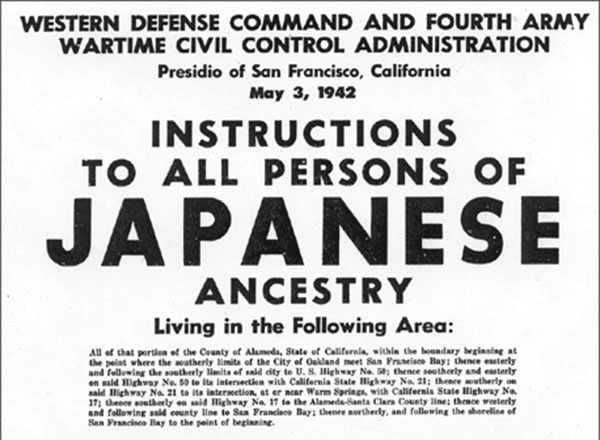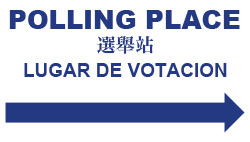May is Asian/Pacific American Heritage Month. In his proclamation, President Obama cited the accomplishments of Asian Americans, Native Hawaiians and Pacific Islanders and acknowledged the difficulties that members of this community have faced both historically and in the present.
Let’s take a short trip through our nation’s case law to look at some of these difficulties. Your lessons in school might not have given you a complete picture on American history.
1. Korematsu v. United States

Photo Credit: National Park Service.
Fred Korematsu, an American citizen of Japanese descent, challenged his conviction for remaining in San Leandro, California, in violation of Exclusion Order No. 34, which required all persons of Japanese ancestry to evacuate from a designated geographical area. The Supreme Court stated that “legal restrictions which curtail the civil rights of a single racial group” must be subject to the most rigid scrutiny. “Pressing public necessity may sometimes justify the existence of such restrictions; racial antagonism never can.”
To justify the exclusion order, the Court cited the “definite and close relationship” between the exclusion order and “the prevention of espionage and sabotage.” The Court acknowledged the overinclusive nature of the exclusion order, noting that most of the people impacted by the exclusion order were “no doubt . . . loyal to this country.” However, the Court was not prepared to question the military’s judgment that “it was impossible to bring about an immediate segregation of the disloyal from the loyal” and upheld the exclusion order.
In dissent, Justice Frank Murphy acknowledged the deference that must be accorded to the military in its prosecution of the war. Nevertheless, the order by the military to remove all persons of Japanese ancestry from the Pacific Coast was not reasonably related to its claimed goal of preventing sabotage and espionage because the reasons offered in support of the exclusion order were based not on expert military judgment, but on “misinformation, half-truths and insinuations that for years have been directed against Japanese Americans by people with racial and economic prejudices.”
Even if “some disloyal persons of Japanese descent on the Pacific Coast [] did all in their power to aid their ancestral land,” “to infer that examples of individual disloyalty prove group disloyalty and justify discriminatory action against the entire group is to deny that, under our system of law, individual guilt is the sole basis for deprivation of rights.”
See Korematsu v. United States, 323 U.S. 214 (1944)

 The Missouri Supreme Court, sitting en banc, issued a decision yesterday that, on its face, seems like a defeat for proponents of same-sex marriage in that state. In
The Missouri Supreme Court, sitting en banc, issued a decision yesterday that, on its face, seems like a defeat for proponents of same-sex marriage in that state. In  In light of the Supreme Court’s
In light of the Supreme Court’s  We have some interesting cases from our
We have some interesting cases from our  Election season is upon us, and an interesting opinion came out last week. In
Election season is upon us, and an interesting opinion came out last week. In 
